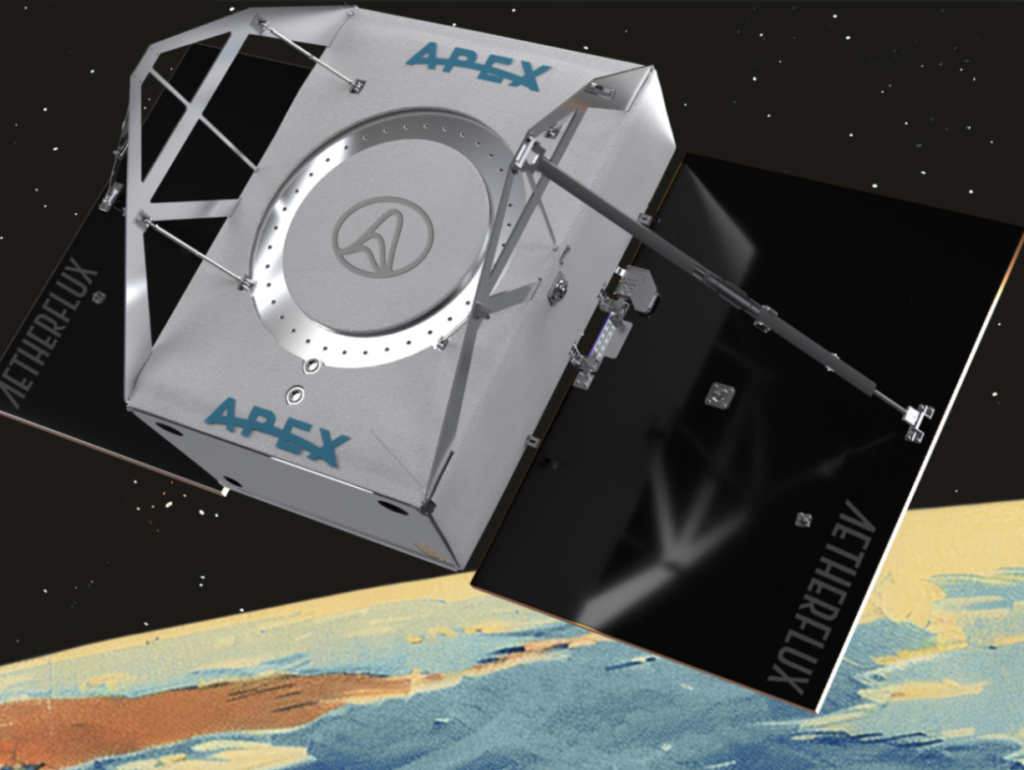In a bold leap towards harnessing clean energy from the cosmos, one of Robinhood’s billion-dollar founders has unveiled plans to deploy hundreds of solar panels in space. This visionary project, poised to revolutionize global energy consumption, also promises to establish a remarkable precedent in the use of extraterrestrial resources.
The Grand Vision
**Baiju Bhatt**, the billionaire cofounder of Robinhood, brings forth an audacious plan that seems pulled straight from the pages of a sci-fi novel. His proposal aims to launch **a constellation of solar panels into Earth’s orbit**, capturing sunlight uninterrupted by the vicissitudes of weather or day-night cycles. The harvested solar energy would then be beamed back to Earth, potentially providing *vast quantities of clean energy* to meet ever-growing demands.
The concept of space-based solar power isn’t entirely new, but with the backing of Bhatt’s vision and capital, this initiative finds itself on firmer ground. The mission combines his passion for renewable energy with the cutting-edge capabilities of modern aerospace technology.
Implementing the Space Solar Arrays
In practical terms, **Bhatt’s plan** involves the construction of hundreds of solar panel satellites arrayed throughout low Earth orbit. Each panel is designed with the **latest photovoltaic technology**, maximizing energy generation to levels unimaginable for their terrestrial counterparts.
- Launch Strategy: The deployment plan leverages reusable rocket technology, significantly lowering the cost and environmental impact of sending hardware into orbit.
- Wireless Energy Transmission: Using microwave beams to transmit energy, these panels can effectively send power back to rectenna stations on Earth, where it is converted back to electricity.
- Scalability: The plan is designed to start with a manageable number of satellites, with an infrastructure robust enough to expand over the next decade.

Addressing Challenges and Questions
It’s no surprise that such an audacious endeavor is not without its challenges. The logistics of transporting the necessary materials, ensuring longevity and resilience of the panels, and managing orbital traffic, rank high among the hurdles. However, Bhatt’s team has been steadily working towards viable solutions.
Concerns have been raised regarding the safety of beaming energy through Earth’s atmosphere. Yet, experts argue that with precise control mechanisms, akin to laser communications, dangers can be minimized to negligible levels.
Economic and Environmental Impact
The economic implications of Bhatt’s plan are profound. The setup costs are undeniably enormous, but the potential returns from selling clean energy and reducing global carbon footprints could be equally monumental. By bypassing the limits of terrestrial solar power, this initiative creates a new frontier for sustainable development.
- Job Creation: The growth of this initiative may spur job creation in both the aerospace industry and the renewable energy sector.
- Reducing Dependency: Successfully implementing space-based solar could lessen humanity’s reliance on fossil fuels dramatically.
The Larger Context – Billionaires and Their Investments
While Robinhood’s foray into the cosmos is groundbreaking, it is also a reflection of the broader trend of billionaires investing in grand ventures. Such projects not only tackle pressing global issues but also invest in the infrastructure of the future.
Billionaire-driven initiatives have a dual nature: they can seem extravagant at first glance but often foster innovations that benefit society at large. Bhatt’s space solar project reflects this dynamic well. It embraces risk, pursues exceptional goals, and seeks returns that can transform sectors while aligning with the global push towards sustainability.
As with Jeff Bezos’ investment into space tourism through Blue Origin and Elon Musk’s relentless pursuit of interplanetary colonization with SpaceX, Bhatt’s ambitious plans underscore the idea that when billionaires apply their resources to visionary problems, **they not only fuel innovation but can also significantly influence global economies**. Indeed, when managed ethically and sensibly, these grand investments have the potential to leave a lasting, positive legacy for generations to come.